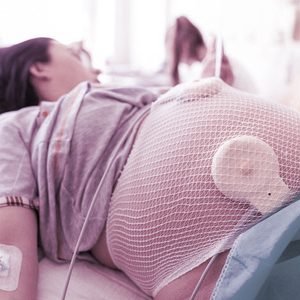The recent High Court decision in Bird v DP (Pseudonym) [2024] HCA 41 has raised serious concerns for survivors of institutional abuse.
While it creates new challenges, it doesn’t close the door completely on those seeking justice. It does, however, make it clearer than ever how important expert legal advice is in institutional and historical abuse matters.
In this case study, we explore what this landmark decision means for survivors, how it will affect future claims, and what key lessons can be drawn from the outcome.
The case
Bird v DP (Pseudonym) centres on Father Bryan Coffey, an assistant priest in the Diocese of Ballarat—an institution with a known history of protecting abusers. The Royal Commission uncovered widespread evidence that the Diocese of Ballarat harbored a deeply entrenched culture of shielding abusers. Senior clergy consistently failed to report allegations of child sexual abuse to authorities, instead transferring offending priests between parishes, where they often reoffended.
Coffey molested at least a dozen children, including the respondent, DP (Pseudonym)—then a five-year-old boy who trusted Coffey as a spiritual leader. Coffey exploited his role, facilitated by the full power and trust of the Church, to commit heinous acts of abuse.
The Diocese did not deny Coffey’s actions. Instead, they argued they weren’t legally responsible for his crimes—because Coffey wasn’t technically their employee. The High Court agreed, ruling that an institution can’t be held vicariously liable without an employment relationship.
What this means for survivors
This outcome has major implications. Survivors who were abused by someone connected to an institution—such as a volunteer, or a priest within an unincorporated church—will now have to prove direct negligence. That means showing the institution knew, or should have known, that the abuser was a risk.
The call for law reform
There are growing calls to close the legal gap this case has exposed. Former Prime Minister Julia Gillard—who oversaw the Royal Commission into Institutional Responses to Child Sexual Abuse—has called for urgent legislative reform.
In NSW, as it stands, the decision of Bird v DP (Pseudonym) does not affect matters concerning abuse occurring on 26 October 2018 or later—as legislation had previously been enacted holding organisations vicarious liable for abusers who are akin to an employee.
Although there have been calls to apply the same legislation to retrospective matters, there are no guarantees that this will take place.
A culture of silence persists
The ABC’s recent Compass episode, The Bishop Who Knew Too Much, sheds further light on the systemic protection of abusers within religious institutions. It features former Anglican Bishop of Newcastle, Greg Thompson, who courageously spoke out about his own abuse and the Church’s failure to respond adequately. The program also features writer, social commentator, and author of Crimes of the Cross, Anne Manne, who researched the Newcastle Anglican case during the Royal Commission and speaks powerfully about the culture of silence and complicity that has enabled abuse to continue unchecked. Their contributions reinforce the urgent need for institutional accountability and reform—particularly in light of Bird v DP (Pseudonym).
Where to for institutional abuse survivors?
While the decision of Bird v DP (Pseudonym) will present hurdles in many historical abuse matters going forward, there remain clear and viable avenues to take action against institutions at common law.
Importantly, direct negligence still provides an avenue for survivors to pursue action, and we urge survivors to reach out if they wish explore their right to justice.
How can we help?
At Catherine Henry Lawyers, we have the expertise to investigate institutional abuse matters and advise you of your options. If you or someone you know needs guidance navigating an institutional abuse claim or would like more information, we’re here to help.
Contact us
For expert legal advice, contact us on 1800 874 949 or fill in the form below and we will be in touch.




